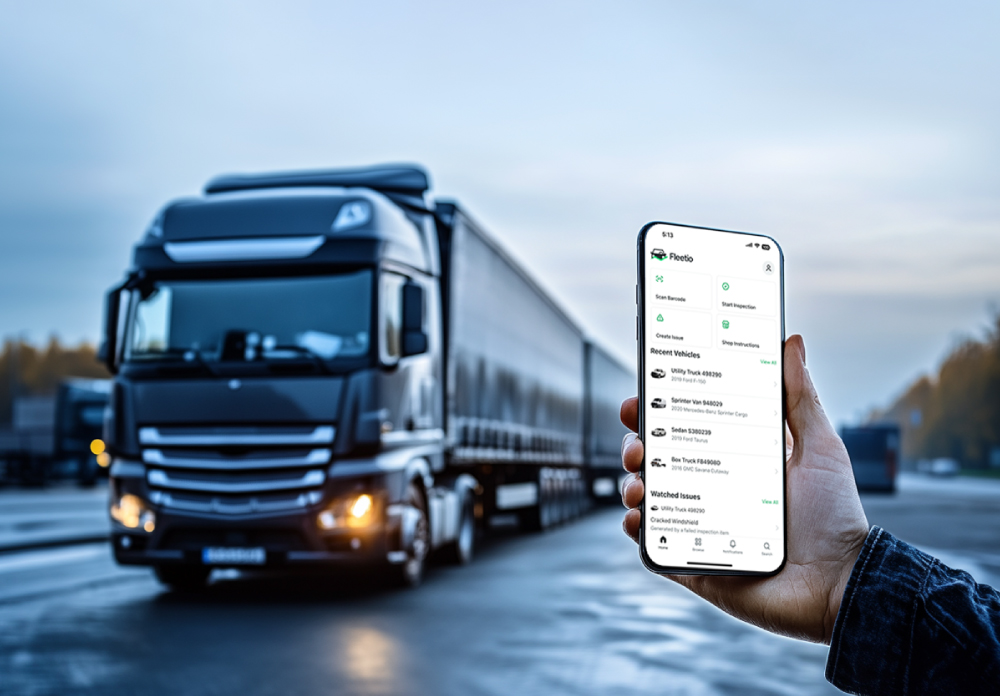
In today’s fast-paced business environment, managing a fleet of vehicles presents numerous logistical and operational challenges. From ensuring timely deliveries and optimising routes to minimising maintenance costs and prioritising driver safety, businesses require robust solutions. Fleet management solutions offer a technology-driven approach to tackle these challenges, providing a comprehensive system to monitor, maintain, and enhance fleet performance.
This post explores what fleet management solutions are, how they function, and why they are crucial for modern businesses, particularly those leveraging ICT for operational excellence.
What Are Fleet Management Solutions?
Fleet management solutions integrate sophisticated software and complementary services, enabling organisations to effectively manage their vehicles. Whether a business operates a small fleet of utility vehicles or a large fleet of trucks, these solutions provide real-time insights into vehicle locations, driver behavior, and overall vehicle health. Leveraging technologies like GPS tracking, telematics, and cloud computing, these solutions are especially relevant in contexts with complex logistics and remote operations.
Key Features and Technological Foundations
![]()
Real-Time Vehicle Tracking:
- Utilises GPS technology to provide precise, real-time location data.
- Offers insights into vehicle speed, route history, and unauthorised usage patterns.
- Enhances operational visibility, enabling rapid response to incidents and dynamic route adjustments.
Advanced Routing and Dispatching:
- Employs sophisticated algorithms to calculate optimal routes based on traffic, roadworks, and weather conditions.
- Supports dynamic dispatch, allowing for real-time task reassignment during delays or emergencies.
- Reduces fuel costs and vehicle wear through optimised routes.
Automated Maintenance Management:
- Automates maintenance schedules and repair tracking via software platforms.
- Provides scheduled reminders for routine maintenance, minimising downtime.
- Logs detailed repair and inspection histories for compliance and audit purposes.
Driver Behavior Monitoring:
- Leverages telematics data to monitor driving habits, such as speeding, harsh braking, and prolonged idling.
- Provides performance feedback and training resources to improve driver safety.
- Ensures compliance with regulations, including fatigue management for long-haul operations.
Fuel Management and Analytics:
- Tracks fuel consumption patterns to identify inefficiencies and potential cost-saving measures.
- Detects fuel card misuse and potential theft through data analysis.
- Provides cost insights for better budget management and expense reduction.
Compliance Monitoring and Reporting:
- Automates logging of driver hours, vehicle maintenance, and incidents for regulatory compliance.
- Prepares organised data for audits and inspections.
- Ensures adherence to industry standards and reduces the risk of fines or operational disruptions.
Data Analytics and Integration:
- Provides real-time dashboards and detailed reports for operational performance analysis.
- Offers historical reporting to identify trends and inform strategic planning.
- Integrates with other business systems (payroll, accounting, CRM) and on-vehicle hardware (ELDs, dashcams).
How Fleet Management Solutions Work: A Tech-Driven Approach

The functionality of fleet management solutions relies on the integration of various technologies:
Cloud-Based Software: Most solutions operate on cloud platforms, ensuring real-time data accessibility from any location. This facilitates remote management and collaboration.
Telematics Devices: Installed in vehicles, these devices transmit data on location, engine diagnostics, and driver behavior to the central system.
Mobile Applications: Mobile apps enable both fleet managers and drivers to access critical information and communication tools on the go.
Central Dashboards: Back-end systems aggregate and present data through intuitive dashboards, enabling quick analysis and proactive decision-making.
Business Benefits of Fleet Management Solutions
For businesses aiming for operational excellence through technology, fleet management solutions offer significant advantages:
Cost Optimisation: Reduced fuel costs, minimised maintenance expenses, and potential insurance benefits.
Enhanced Safety: Improved driver behavior monitoring and vehicle condition tracking lead to fewer accidents.
Increased Productivity: Automation of routine tasks and real-time communication boost overall productivity.
Environmental Sustainability: Efficient routing and reduced idling contribute to lower emissions and a smaller carbon footprint.
Is Fleet Management Right for Your Business?
Deciding whether a fleet management system is right for your business depends on a few key factors:
Fleet Size: Even if you manage only a handful of vehicles, the benefits in safety, compliance, and cost management can be significant.
Operational Complexity: If you’re dealing with multiple routes, varying driver shifts, and complex logistics across urban and remote areas, a fleet management solution can bring structure and efficiency.
Growth Potential: As your business expands, these systems can scale with you, ensuring that increased complexity doesn’t lead to chaos.
Regulatory Environment: With stringent laws and compliance standards in Australia, the right tools can help ensure you’re always audit-ready.
Conclusion
Fleet management solutions represent a powerful intersection of technology and business operations. By integrating GPS tracking, telematics, cloud computing, and data analytics, these solutions provide businesses with the tools to optimise their vehicle fleets, ensure compliance, and achieve operational efficiency. For companies seeking to enhance their capabilities through ICT, fleet management solutions offer a strategic advantage, leading to safer, more efficient, and profitable operations.
Get in Touch
Ready to leverage cutting-edge fleet management technology for your business? Contact Exceed ICT for a tailored consultation and discover how we can help you drive efficiency and success.
Telecoms Expense Management, Device Deployment, Mobile Fleet management, Telstra enterprise Mobility, Telstra mobility Managed Services.
Improve Business Core values, Business Consulting, Network Management, Telstra Expense Management and many more Services.
Check our Services And Solutions.


